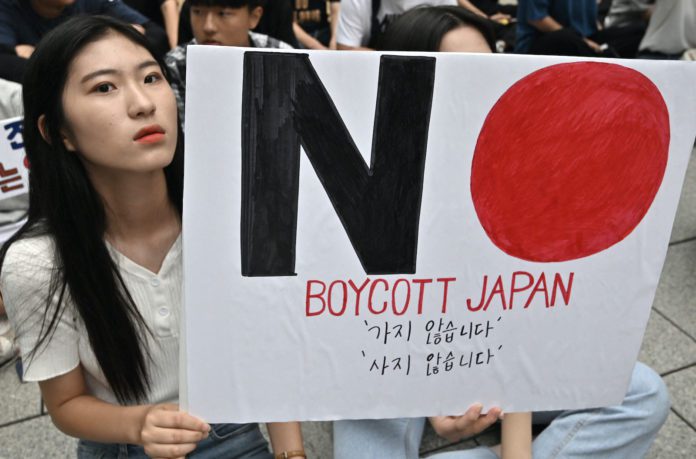With leadership changing in Tokyo and Seoul, voters and their US ally should demand greater cooperation and statesmanship
For years, American diplomats and military leaders have been asking the South Koreans and the Japanese, “Can’t we all just get along?”
The logic is clear: If the three worked together, at least militarily, it would greatly complicate life for those in North Korea and China who want to change the status quo.
And yet, there are still some who answer “no, we can’t get along” – including Lee Jae-myung, the ruling Democratic Party’s candidate in next year’s South Korean presidential election.
In a recent interview, Lee ruled out the possibility of a US-South Korea-Japan military alliance, explaining that South Korea “needs to be prepared in the event Japan’s dream of continental expansion erupts militarily.”
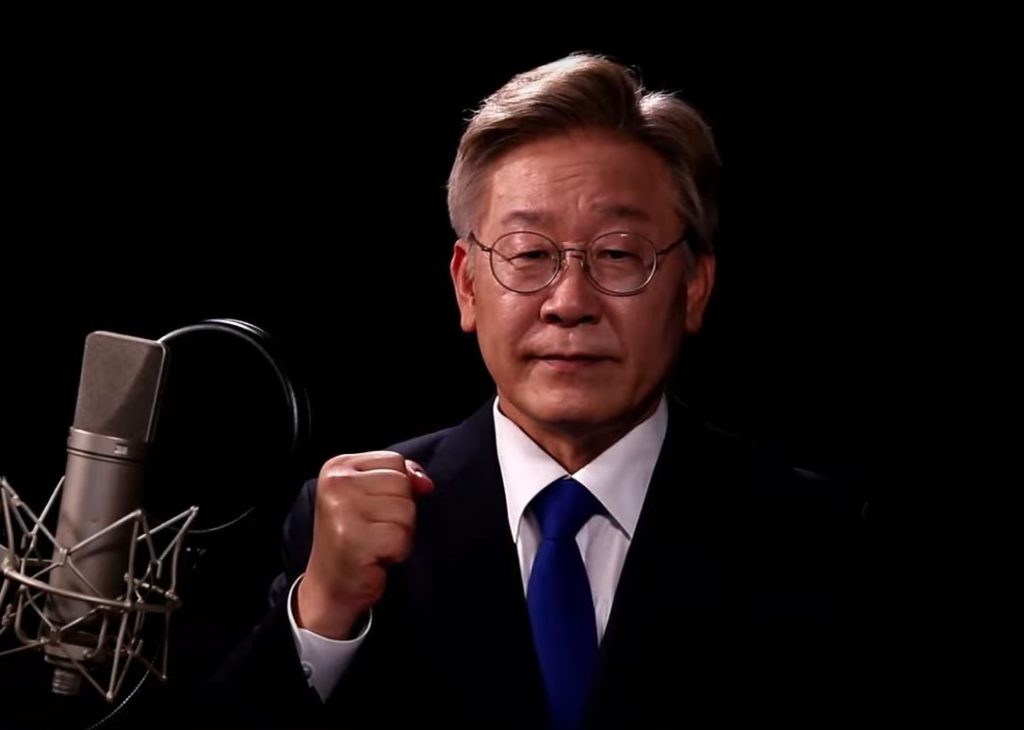
Yes, the animosity is real and deep. And each side thinks it is more aggrieved than the other. But there are also those on the outside who are working to stoke the embers of the past for their own aims. And, if it continues, the outcome could be disastrous for the people of all three now free countries.
The historical touchstone period is 1910-1945, when Japan colonized the Korean peninsula – although Koreans claim Japanese torment of Korea goes back much farther.
View from Tokyo
Japan feels it has made reparations and apologies – and has already (more than once) reached an agreement with South Korea on a “full and final” settlement of differences. Tokyo complains the Koreans keep asking for another apology.
Tokyo is also irked that South Korean administrations periodically play the Japan card as a way of drumming up domestic political support.
During the Moon administration, South Korean courts awarded damages against Japanese companies for using Koreans as forced labor during World War Two – despite a 1965 bilateral agreement that supposedly had settled such claims.
The “comfort women” issue is another perennial cudgel used against Japan – as Tokyo sees it – as are complaints about Japanese politicians visiting the Yasukuni Shrine. And there is South Korea’s rubbing of Japan’s noses in the Dokdo/Takeshima island issue – Japanese territory (according to Tokyo) that the Republic of Korea seized from a weakened post-war Japan.
View from Seoul
South Korea reckons it is “right” about all the things the Japanese complain about. In fact, it is risky for anyone in South Korea to publicly suggest otherwise.
While South Korean leftist administrations most readily and forcefully play the Japan card, conservative administrations have done so as well. Such demagoguery has been effective.
Some Koreans understand the nation’s broader geopolitical interests and the need to prioritize a secure future over past resentments – but even they often can’t help themselves.
To quote one US Marine officer who spent many years in South Korea: “The Japanese bring out the worst in the Koreans.”
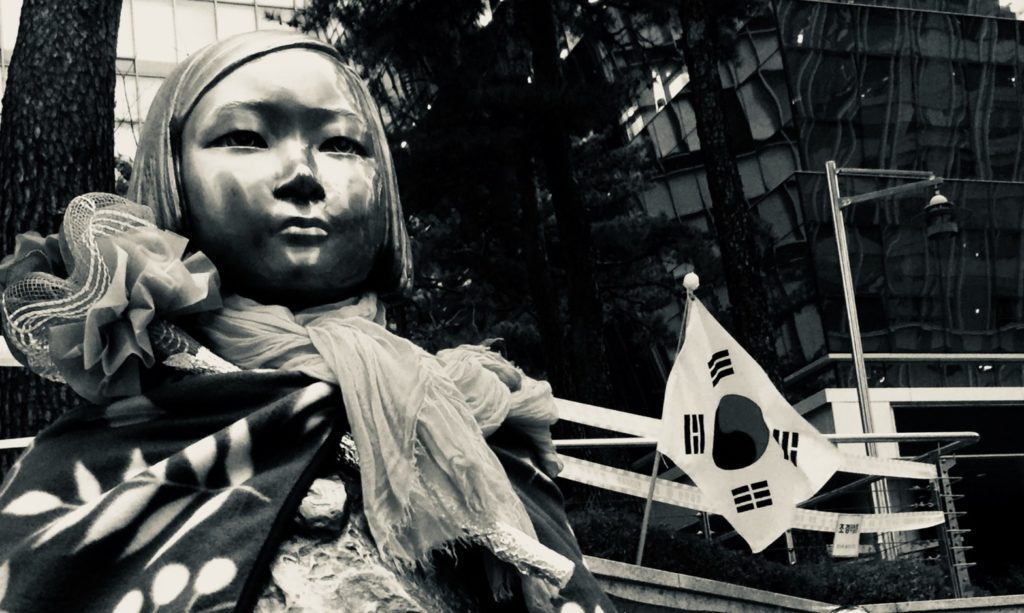
Japan’s colonial era and the country’s World War Two actions inflicted much human suffering.
But it is worth remembering that Japan was punished for its behavior: More than three million Japanese died. Every Japanese city of consequence was in ashes. Nuclear bombs were dropped – with radiation sickening survivors for generations.
Japan was occupied by a foreign force – that still is in Japan. And Japan had to provide its own comfort women scheme for the occupying forces.
And while Korea suffered mightily at the hands of the Japanese, one might also consider World War Two allied prisoner-of-war accounts of extraordinary brutality by Korean guards in the Japanese-run POW camps.
And just 20-plus years afterward, South Korean troops in South Vietnam had a sometimes nasty reputation for massacring Vietnamese civilians and murdering prisoners of war. No apologies have been forthcoming.
The case for getting along
South Korea and Japan aren’t the only pair of countries with deep-rooted issues. But both are key US allies – covered by treaty obligations. US forces have been stationed in South Korea and Japan for more than seven decades. The Americans have solid longstanding bilateral (though not triangular) relationships with ROK and Japanese forces.
This is a part of the world where the United States has deep interests and, along with its allies, faces dangerous threats.
South Korea and Japan face common and immediate threats from North Korea. And the People’s Republic of China is looking to dominate the Asia-Pacific and drive the US off the peninsula and out of the region – making it easier for Beijing to dominate Japan, South Korea and everyone else.
Given the seriousness of the threats, from Washington’s point of view, the logic of “My enemy’s enemy is my friend” should trump historical animosity the way the threat of the Soviet Union brought post-War France and West Germany closer together.
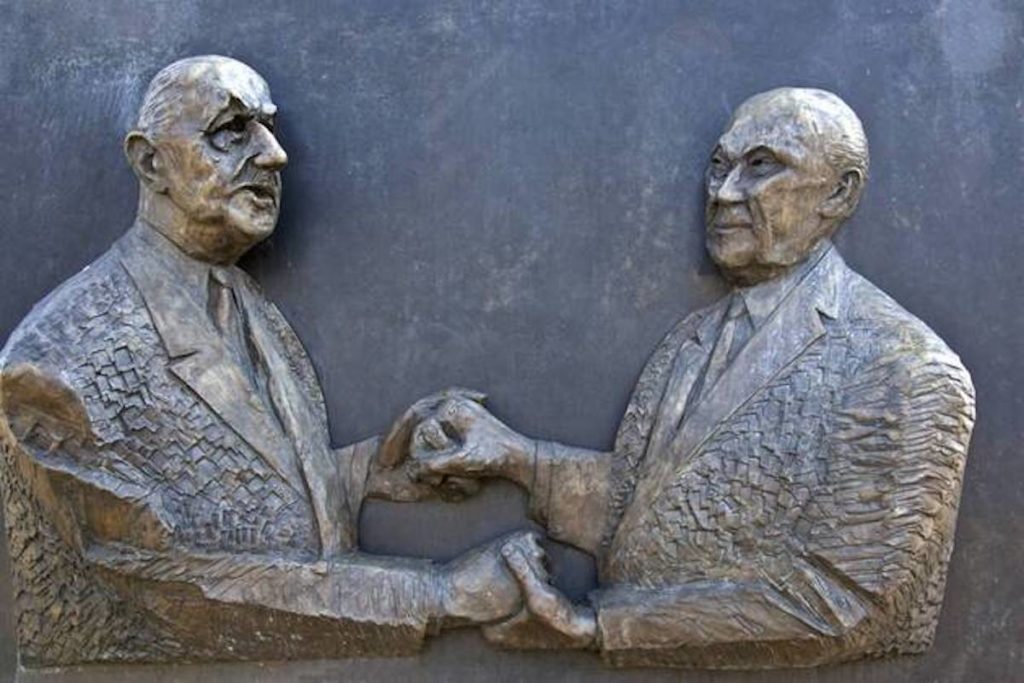
One understands Washington’s frustration with Seoul and Tokyo’s inability to get along – especially as, without bases in Japan, it would be nearly impossible to defend South Korea. The three countries need each other.
Precedent for ROK-Japan cooperation
This is especially true because there are many potentially positive elements to build upon, should anyone want to. The South Korean and Japanese economies are intertwined; the familial and cultural connections, considerable.
Even militarily, South Korean and Japanese forces have worked together, including in combined efforts to enforce sanctions against North Korea:
- An ROK Navy/Japanese Navy exercise was held in the South China Sea – along with the US Navy.
- ROK/Japan high-level defense talks occurred (usually with Americans present and organizing the meetings).
- At least one ROK army unit has had a counterpart relationship with a Japan Ground Self-Defense Force regional army.
- Officers went on study tours in both directions.
- Defense attachés were posted respectively in Seoul and Tokyo.
- GSOMIA (General Security of Military Information Agreement), a three-way intelligence sharing deal including the US, lets South Korea and Japan share directly with each other information about North Korea’s military and nuclear activities.
However, the cooperation is not widely celebrated in the local media – and North Korean and PRC-linked political warfare seeks to undermine any rapprochement. At the same time, some South Korean and Japanese political leaders do Pyongyang and Beijing’s heavy lifting by looking for reasons to scale back cooperation and vilify the other country.
South Korean President Moon came within days of pulling out of the GSOMIA with the Japanese in 2019. He relented only under heavy American pressure.
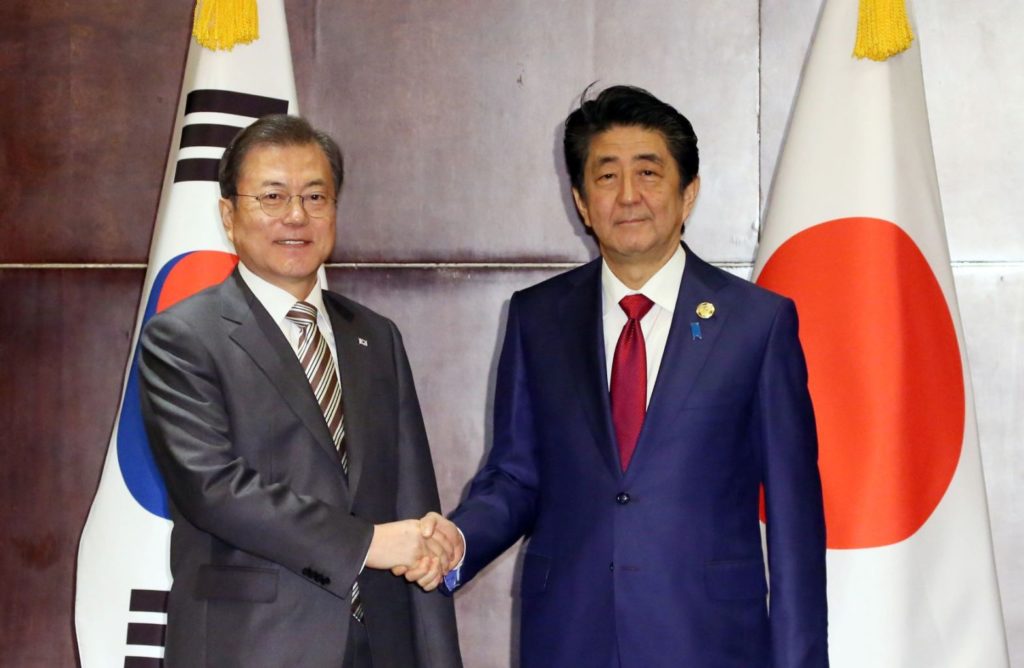
Overall, the relationships are limited and somewhat forced, rather than based on any genuine desire to cooperate against recognized threats.
But, with the right leadership, things can change quickly. The French and Germans – who fought three ferocious wars between 1870 and 1945 – came together in the 1950s to lay the groundwork for what became the European Union.
It takes the sort of statesmanship that can put the past into the corner and figure out ways to resolve differences for the greater good.
More active US role needed
To help these leaders emerge, the Americans could shrug off their reticence and play a more active role in soothing the South Korea-Japan relationship.
Up until now, while the Americans remained mute, South Korean administrations and politicians – often to the delight of Beijing and Pyongyang – have too often been able to stoke anti-Japanese resentments for political advantage.
South Korean politicians whip up resentment – and votes – while hampering America’s ability to deter or fight a war. Yet the same politicians expect the Americans to fight and die on South Korea’s behalf – and potentially to risk North Korean missile attacks including, one day, nuclear attacks on American cities.
This has also made it harder for Japanese leaders who might otherwise be inclined to make concessions. And it serves as a convenient excuse for some Japanese leaders who don’t wish to make concessions.
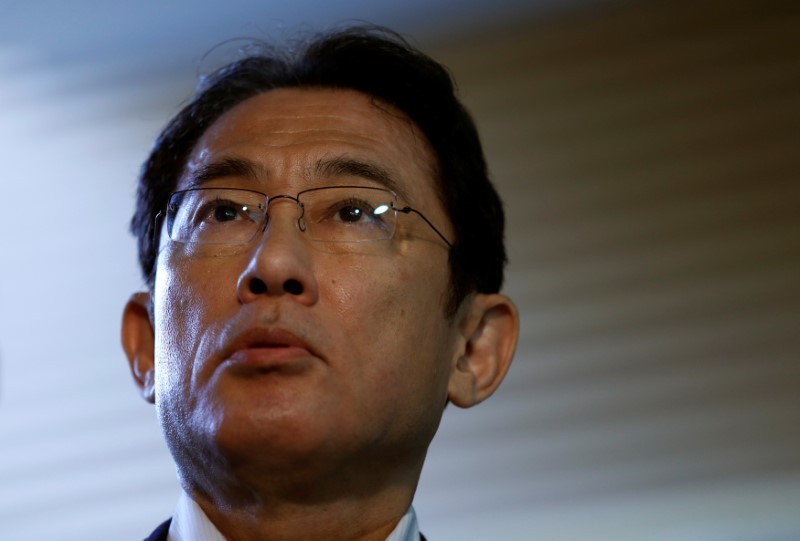
America has considerable “capital” in South Korea – not least as a security guarantor. Part of guaranteeing security should be to speak up and quietly (or not so quietly) insist on at least grudgingly improved bilateral relations.
And this should include military cooperation between the ROK and Japanese militaries, as part of an informal (and unstated) tri-lateral defense scheme for the Korean Peninsula.
Washington should keep in mind that public opinion polls in South Korea reveal overwhelming support for the ROK-US alliance – and for the American military presence.
These polls are telling, given the South Korean extreme leftists (known as Jusapa) who dominate the Moon administration are fundamentally anti-American and pro-North Korea. They typically see the US as an occupying force and as the reason the peninsula and Koreans are divided. Jusapa view the Japanese as American lapdogs.
If the Americans speak up, the Jusapa will not like it (nor will their comrades to the North), but a majority of South Koreans just might.
And another note of caution: Even “pro-American” South Koreans need to be careful about letting resentment of Japan get out of hand. Besides harming defense capabilities, many American citizens (and voters) might question why US troops should fight and die on South Korea’s behalf if Koreans won’t fully cooperate with the United States.
As for Japan, the Americans are similarly committed to dying for Japan and need to request that the Japanese government bend over backward (even if asking feels like “once again”) to try to sort this out.
Of course, it often takes generations to get over history. And even then memories linger. But wallowing in resentment is no more productive for governments and nations than it is for individuals.
One hopes for South Korean and Japanese leaders to come along who speak up for a cooperative present – rather than leaders such as Lee Jae-myung, who seem to be trying to recreate the past through divisive statements about the future.
That may, in fact, be possible. The South Korean opposition’s presidential candidate, Yoon Seok-yeol, said the other day that, if elected, he would put relations with Japan back on an even keel. Japan’s Prime Minister Kishida just might reciprocate.
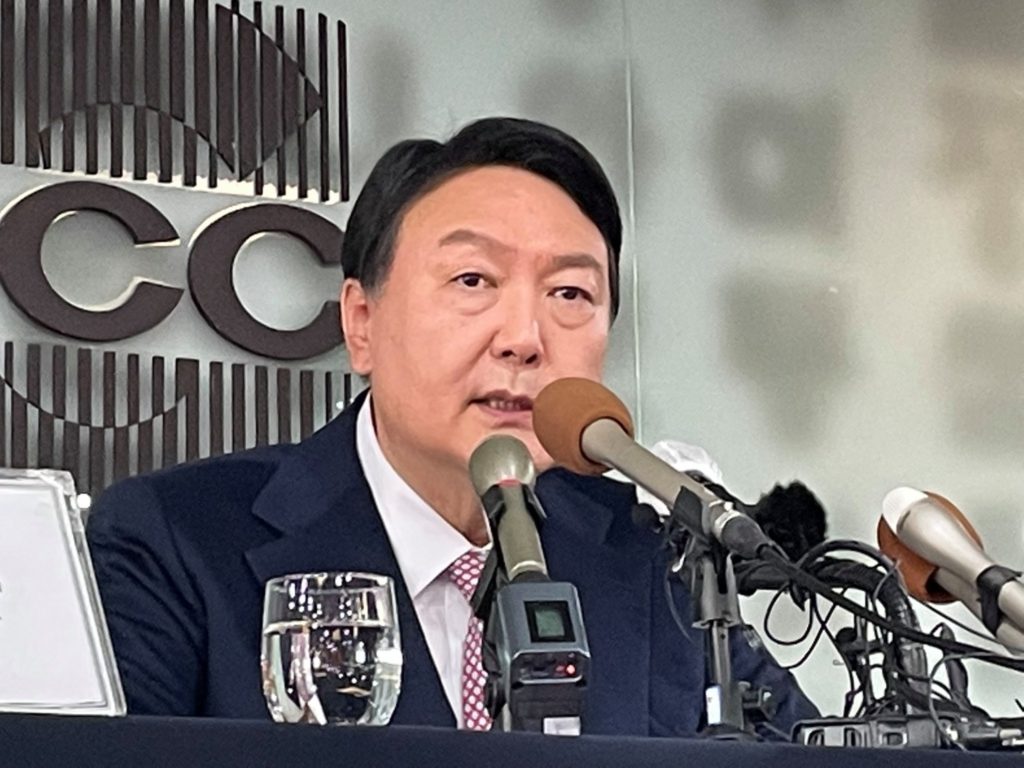
And since the United States is footing the bill for both countries’ freedom – to be paid in American blood (again) – it is time the US government at least speaks up and requests some statesmanship.

